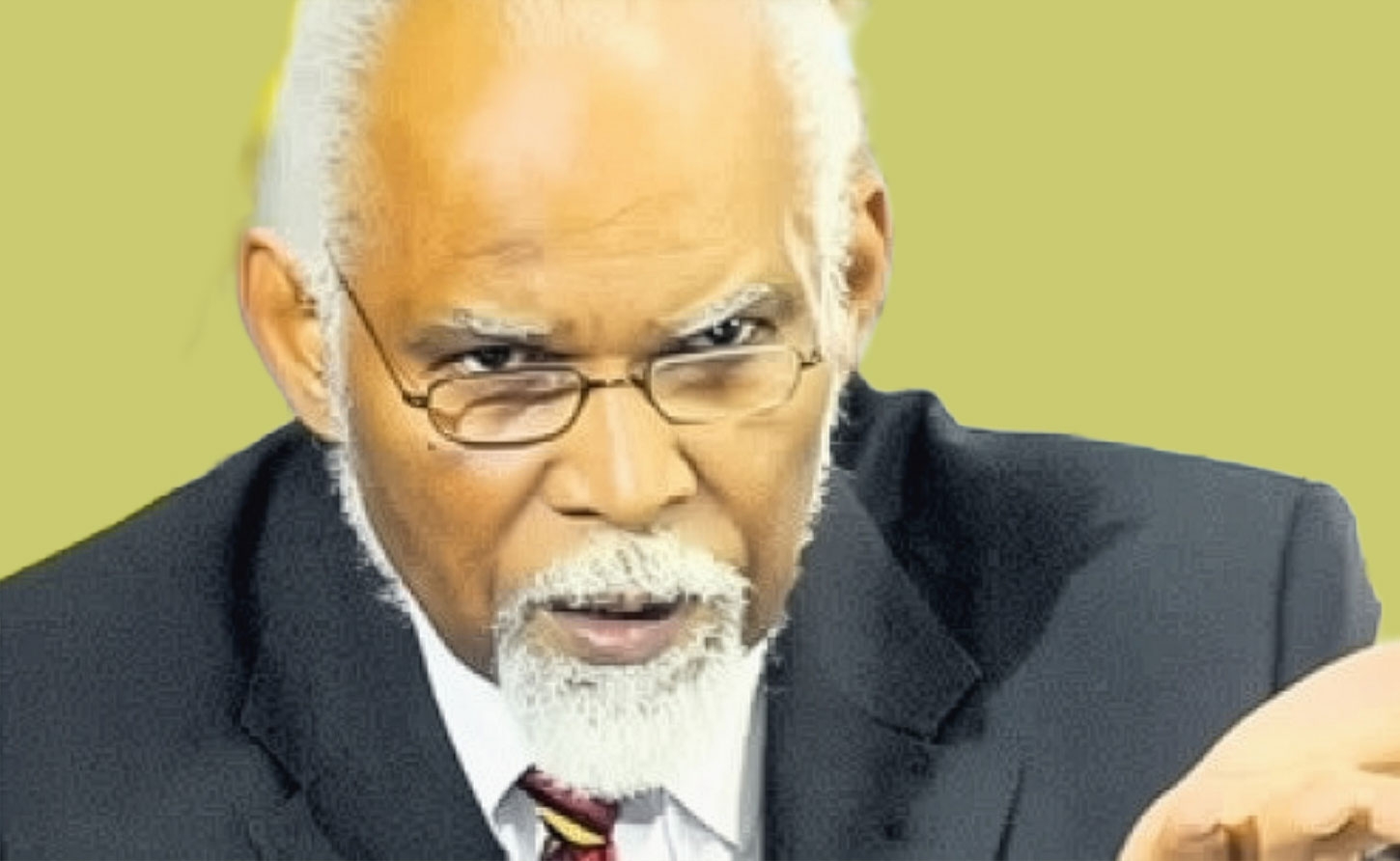JAMAICA | KD Knight Threatens Legal Action against JLP, Tufton Over 'Fabricated' Audio at JLP Rally

MONTEGO BAY, August 12, 2025 - In the time it takes to brew a cup of Blue Mountain coffee, sophisticated software can now steal your voice, twist your words, and destroy your reputation. King's Counsel KD Knight discovered this terrifying reality when he heard himself—or what sounded remarkably like himself—questioning Mark Golding's fitness for leadership at a JLP rally he never attended.
His response was immediate and chilling: if they can do this to one of Jamaica's most prominent attorneys, they can do it to anyone.
The Shot Heard 'Round Half-Way-Tree
Knight's response was swift and volcanic. The veteran attorney didn't merely deny the recording—he obliterated it with the precision of a legal scalpel and the fury of a man whose reputation hangs in the balance.
"The recording is a lie. Every syllable attributed to me re Mark Golding's unsuitability to be prime minister is a lie," Knight declared, his words carrying the weight of both professional outrage and political calculation. This wasn't just pushback; it was a declaration of war against what he termed "a desperate and reckless act of political sabotage."
Knight's language choice reveals the stakes: "malicious fabrication," "assault on truth and democratic integrity," "calculated attempt to manipulate public opinion." These aren't the words of mild disagreement—they're the ammunition of a man who believes his political enemies have crossed a line that threatens the very foundation of democratic discourse.
When Technology Becomes Weaponry
The allegation of audio manipulation thrusts Jamaican politics into an uncomfortable modern reality. In an era where sophisticated deepfake technology can be accessed through smartphone apps, the question isn't whether such fabrications are possible—it's whether voters can distinguish authentic recordings from digital phantoms.
Caribbean political campaigns have historically relied on more traditional forms of mudslinging: whisper campaigns, doctored photographs, and selective quote mining. But if Knight's allegations prove accurate, Jamaica may be witnessing the arrival of a far more sinister tool—one that could fundamentally alter how political battles are fought across the region.
The technical challenge is stark: while creating convincing fake audio has become remarkably accessible, proving fabrication remains complex and expensive. Knight's legal team will need more than indignation; they'll need forensic audio experts, metadata analysis, and potentially testimony about Knight's whereabouts and activities when the recording was allegedly made.
The Strategic Chess Game
Knight's voice carries particular weight in this political moment. As a respected legal mind with decades of public service, his apparent critique of Golding would have represented a devastating blow to PNP unity narratives. The timing—mid-campaign season when voter perceptions crystallize—made the recording's emergence tactically brilliant if authentic, diabolically calculated if fabricated.
For the JLP, the recording offered a perfect weapon: an insider's voice questioning their opponent's leadership. For the PNP, Knight's alleged words threatened to unravel carefully constructed messaging about party cohesion and Golding's broad appeal across traditional party lines.
Tufton's decision to broadcast the recording at a public rally, rather than releasing it through media channels, suggests confidence in its authenticity—or a calculated gamble that the immediate political impact would outweigh any eventual legal consequences. The rally setting amplified the drama while making the recording's contents part of the public record, complicating any attempts at legal suppression.
Legal Warfare in the Digital Arena
Knight's promised legal action faces significant hurdles. Defamation cases are notoriously complex, and proving malicious fabrication of audio evidence requires technical expertise that Jamaican courts rarely encounter. The precedent this case sets could reshape how Caribbean democracies handle digital manipulation in political campaigns.
More troubling is the broader implication: if prominent political figures can have their voices convincingly fabricated, what protection do ordinary citizens have against similar digital weapons? Knight's case may be about personal reputation, but its resolution will echo far beyond his legal practice.
The veteran attorney's final words reveal the deeper concern: "The people of Jamaica deserve better than these underhanded tactics." In an age where technology can manufacture truth as easily as it can reveal it, the real question isn't whether the recording is authentic—it's whether Jamaican democracy can survive in a world where voters must become forensic experts to distinguish fact from fabrication.
-30-
